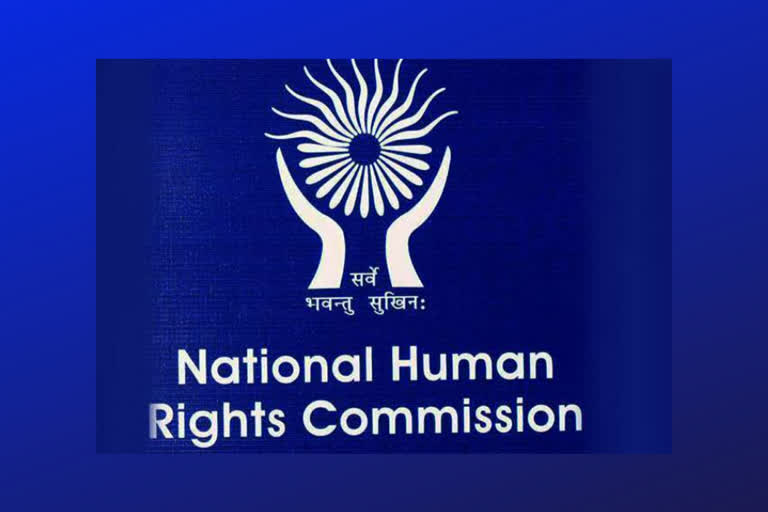New Delhi: The NHRC on Friday issued an advisory to the Centre and all states and union territories in which it laid out a range of recommendations for protecting the dignity and the rights of the dead people in the wake of reports of alleged mishandling of bodies of COVID-19 victims.
In a statement, the National Human Rights Commission said the recommendations include enacting specific legislation to protect the rights of the dead, adding that "mass burial or cremation should not be allowed to take place as it is in violation of the right to dignity of the dead".
"The hospital administration should be explicitly prohibited from deliberately retaining any dead body on the count of pending bill payment; the unclaimed bodies must be stored under safe conditions," the recommendations read.
The advisory gathers significance in the context of the NHRC on Thursday, issuing notices to the Centre, Bihar and Uttar Pradesh governments on a complaint about bodies found floating in the river Ganga, it said.
"The NHRC, keeping in view a large number of deaths and reports in the media about the mismanagement/mishandling of COVID-19 affected dead bodies today issued an advisory to the Centre and states for protecting the dignity and the rights of the dead," the statement said.
ALSO READ: NHRC directs Odisha CS to look into health, chronic malnutrition issues in rural areas, take action
The right panel asserted that it should be the duty of every citizen to inform, after noticing any incident of death, immediately to the nearest police station and/or to emergency ambulance services or the administrative or legal authorities, whichever feasible.
The Commission, in a letter through its Secretary-General Bimbadhar Pradhan to the Union home secretary, Union Health and Family Welfare Secretary and the chief secretaries, administrators of states and union territories, has asked for the implementation of its recommendations in the advisory and sought the action taken report within four weeks, it said.
Among other recommendations, the NHRC has enumerated that each state must maintain a district-wise digital data set of death cases; the death of a person must be simultaneously updated in all documents such as bank account, Aadhaar card, insurance.
The police administration should ensure that there is no undue delay in post mortem; local authorities should ensure that the transportation facilities are available to transport the body of the deceased at the request of family members and the arbitrary hike of ambulance charges is curbed, it added.
The CSOs/NGOs should come forward to take up the responsibility of performing last rites of the unclaimed and unattended bodies in a dignified manner; temporary crematoriums be set up; religious rituals that do not require touching of the body may be allowed such as reading from religious scripts, sprinkling holy water, the recommendations read.
Read: Centre moves SC for review of verdict denuding states of power to declare SEBC
In cases where the repatriation of the body to the family may not be possible, the state or local administration may perform the last rites of the body, taking into account the religious or cultural factors, it said.
Piling up of dead bodies during transportation or at any other place must not be allowed to happen. Encourage use of electric crematoriums; staff handling dead bodies, including those at crematoriums/burial grounds, should be provided protective gear along with the vaccination on priority and they should be fairly paid, the statement said.
The Commission has said that it is a well-accepted legal position that the right to life, fair treatment and dignity, derived from Article 21 of the Constitution, extends not only to the living persons but also to their dead bodies.
"It has noted that despite high court and the Supreme Court judgements, international covenants, guidelines by the WHO, NDMA, the government of India, regarding the maintenance of COVID protocol upholding the dignity of the dead, reports are coming in the media about lowering the dignity of the dead during the COVID-19 pandemic," the statement said.
The Commission has observed that though there is no law to protect the rights of the dead in the country, however, drawing references from the interpretation of the Constitutional mechanism, various court judgements, international covenants and government's guidelines, it has said that it is the duty of the state to protect the rights of the deceased and prevent crime over the dead body, and prepare an SOP in consultation with all stakeholders so that the dignity of the dead is maintained.
PTI
Read: Features and Specifications of Redmi Note 10S and Redmi Watch launched in India



